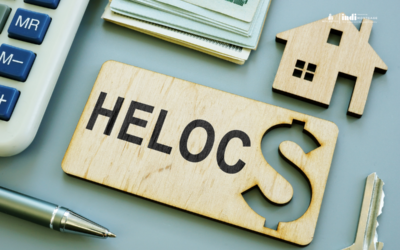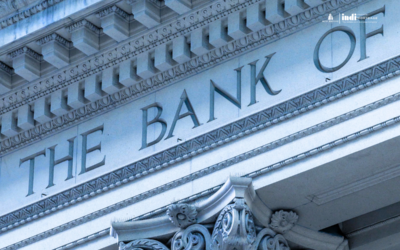Welcome To Our Mortgage Educational Blog About:
10 Quick & Easy Ways To
Recession-Proof Your Finances In 2023
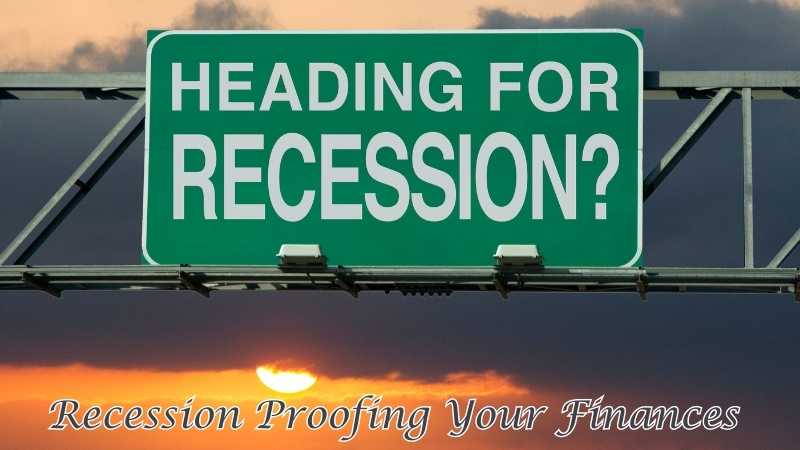
With increasing inflation, fluctuating interest rates, climatic changes, and geopolitical conflicts, a recession may hit global growth in 2023.
The devastated state of the global economy during the great recession of the U.S. has made it more than necessary to prepare yourself for such an economic downturn.
So, how do you go about recession-proofing your finances, especially when we are yet recovering from the effects of a pandemic?
Here are some tips to begin with and make yourself financially stable even if a recession occurs.
10 Ways To Recession-Proof Your Finances
Based on your current financial situation, you may want to consider the following steps to move forward toward economic stability –
1. Create An Emergency Fund
One of the most important steps is to start saving an emergency fund for you and your family. This emergency fund will help you sustain during a recession if the situation worsens.
Ideally, your emergency fund should be able to provide you with at least six months of living expenses.
In case any issue arises with your source of income, you can have a backup this way.
When an economy dips, jobs and income are often in danger, and if you don’t save up a certain percentage of your income regularly, it can make it extremely difficult to survive the times.
Ascertain a target for your emergency fund and try to attain it using various sources of income. If you already have an emergency fund, try to increase your savings there.
2. Pay Off Your Existing Debts
Of course, it’s not as easy but if you want to be ready to face a recession, you need to make sure that you are not owing money to anyone.
In case of recession, people often struggle financially and the first thing that comes to mind is to get back money from everyone who they have credited once.
To avoid the financial burden then, it is better to clear the debt beforehand. Even under normal circumstances, debt can be a really stressful situation that you need to come out of as soon as you can.
Start with high-interest debts like credit card debt, personal loans, and car loans, and then move to pay off debt from other sources.
Once you are done with paying down your debt, you can focus more on savings and investments.
3. Budget Your Monthly Expenses
Creating a budget plan and controlling your expenses based on that is very essential.
With a budget in place, you can plan your monthly expenses based on your income. This will help pay off debts faster, increase an emergency fund, and also avoid taking on newer debts.
Controlling your budget will allow you to maintain financial stability in the long term. It is also important that your budget is practical and based on your cash flow.
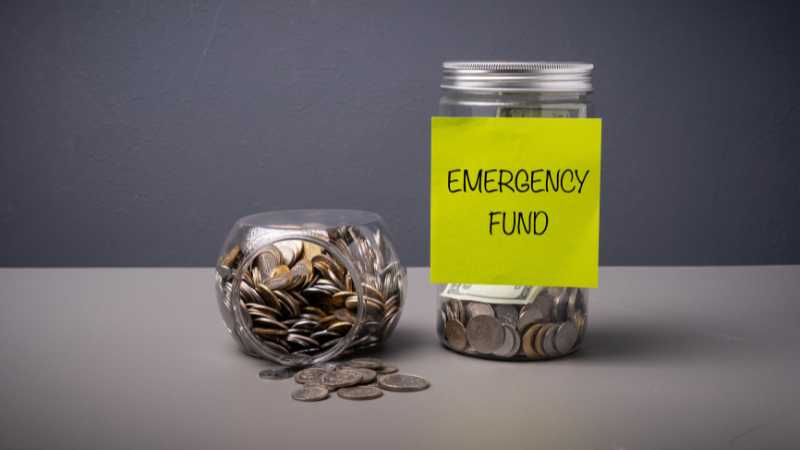
4. Shift To A Minimalist Lifestyle
If you are someone who enjoys a luxurious lifestyle, it is time to start making a shift to frugal living. This will not only help you save more but also prepare you for living in a recession.
This does not necessarily mean that you have to stop spending on leisure activities but budget your expenses and be mindful about how you are using your income.
When you spend money cautiously, you can eventually pay down debts quicker and increase your emergency savings.
5. Increase Your Savings Effectively
Apart from your emergency fund, you should also have a habit of saving for different life milestones.
For instance, if you are planning a big life event like a marriage or a big purchase like a home or car, you must have some cash aside for it.
Besides, if you are short on emergency funds, you can also use your savings to survive a recession. Saving habit also provides financial flexibility and peace of mind.
When you have a considerable amount of money saved, you can live within your means without stressing yourself when the times are tough.
You can hire a professional home stager or a real estate agent to prepare your house for sale or rent. They have the expertise and experience needed to make your home look its best.
You can hire a professional home stager or a real estate agent to prepare your house for sale or rent. They have the expertise and experience needed to make your home look its best.
6. Multiple Source Of Income
Another essential step to recession-proof your finances is to increase your streams of income. Apart from your main earning, you should also have a passive income source and 2-3 other ways to maintain the cash inflow.
Jobs and businesses are at higher risk during a recession period, and if your only source of income gets affected adversely, you may have to struggle for your basic living expenses.
With more than one source of income, you can keep yourself financially secure even if there’s a downturn in the economy.
7. Diversify Your Investments
Investing your money the right way is very essential. Diversification increases the risk tolerance of your portfolio.
So make sure you’re investing in multiple ways like the stock market, mutual funds, real estate, bonds, gold, etc.
A good investment will enhance your financial stability and provide good long-term growth.
8. Upskill Yourself
You need to keep upgrading your skills as per the requirement of current financial times. If you don’t evolve or grow as a professional, you may be easily replaced.
The best way to maintain your job security is by making yourself irreplaceable at your workplace.
You should be able to bring unique value to the table so your source of income stays out of danger even during tough times.
9. Monitor Your Credit Score
Another very important tip is to keep your credit score in the optimum range. A good credit score will depict your financial position which can help you in getting easy loan approvals at a lower interest rate.
Remember, during a recession, mortgage lending gets tighter, though the interest rates decrease. So, it’s important to consult a mortgage service Edmonton if required.
Keep monitoring your credit score and make timely payments so that you can maintain a good score.
10. Consult Financial Experts
If you are not well-versed in personal finance and investment, it is always recommended to take advice from a professional. They will guide you based on your financial goals and risk appetite.
A financial advisor can also help you in taking tough financial decisions so that you can grow your investment and maintain your financial well-being.
Maintain Financial Well-Being Even When Recession Hits!
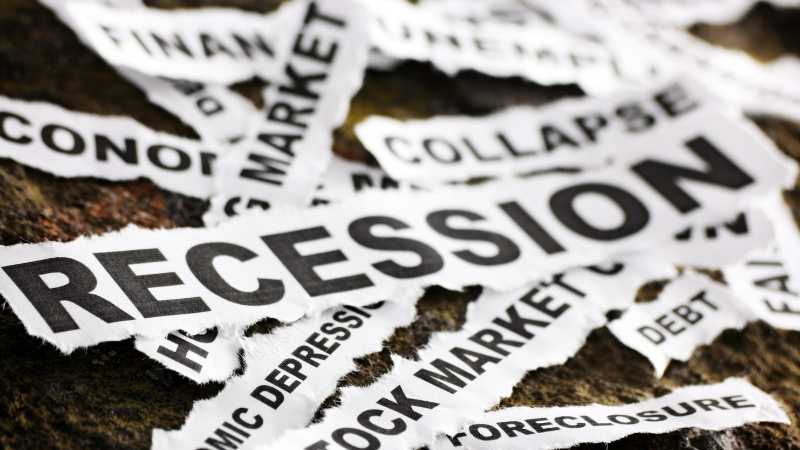
While a recession can really take a toll on your financial health along with other uncertainties, having a financial plan can help you survive the bad times easily until the economy is strong again.
There are certain steps you can take to recession-proof your money, like saving an emergency fund to survive for at least three to six months if you lose your job or your income is at risk.
Other tips to help prepare for a recession include clearing off debts (especially with higher interest rates), having an active savings account, creating a budget, diversifying your income and investments, and taking financial advice from the experts.
Also, don’t forget to upskill yourself and monitor your credit score timely. And in case you want to take a loan, always consult an Edmonton Home Buyers Plan Mortgage Financing.
They will evaluate your financial stability and affordability and let you know if it’s a good time to take a loan or what other option works best for you.
Uncertain times are unfortunately inevitable but with a good financial plan and discretionary spending, you can survive such times and come out of it even stronger!
Don’t hesitate to contact us with any questions you may have.
Recent Educational Blogs
First Responder Mortgage Program
Jan 2026 | First Responder Mortgage ProgramAt Metro Mortgage Group, we have deep respect for the everyday heroes of our city — the members of the Edmonton Police Service, EMS, and Fire Rescue Services. Your commitment keeps our community safe, often at great personal...
Pros and Cons of a Home Equity Line of Credit (HELOC)
Dec 2025 | Pros and Cons of a Home Equity Line of Credit (HELOC)If you’re a Canadian homeowner, you’ve probably heard friends or family talk about using a home equity line of credit, or HELOC. People often use it to renovate, consolidate debt, or help kids with school...
What the Latest Bank of Canada Rate Cut Means for Canadian Borrowers and Homeowners
Nov 2025 | What Rate Cut Means for Canadian Borrowers and Homeowners On October 29, 2025, the Bank of Canada made headlines by cutting its benchmark policy rate by 25 basis points. This move brought the policy rate down to 2.25%. For Canadians with mortgages, loans,...


